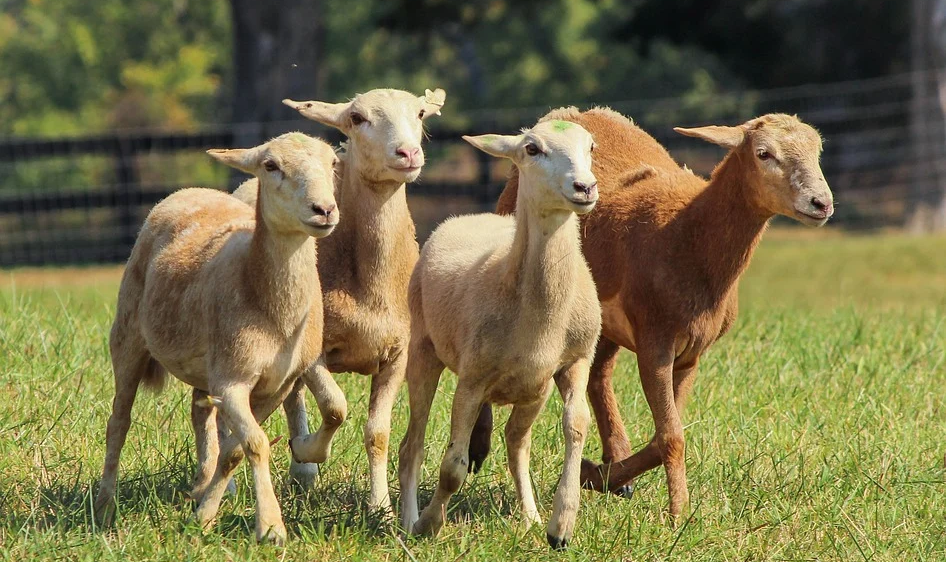 Time:2022-04-13
Time:2022-04-13
The first National Ruminant Feed and Forage Conference and Inner Mongolia Grass-fed Livestock Industry Development Conference was recently concluded in Hohhot.
The conference discussed the current situation facing the ruminant industry, analyzed the status-quo, challenges and development trends of the industry, and shared new technologies and products applied to ruminant feed. It showed promising prospects of the ruminant industry.
NHU is committed to promoting the sustainable development of the ruminant industry. We help improve the reproduction performance of ruminants and meet the nutritional needs of animal growth and reproduction by adding the right amount of nutrients to feed additive products with great knowledge in science. While ensuring the sustainable reproduction of ruminants and safeguarding their welfare and health, we help generate more positive benefits for farms.
At present, NHU's feed additive products mainly contain nutrients like vitamin E, ß-carotene and methionine, which are highly beneficial to the health of ruminants.

Preventing Lameness and Improving Hoof Health
Lameness is one of the major cattle diseases today. It causes cows to eat less and consequently produce less milk. Ill cows are culled too early in life, and farm incomes suffer too.
Today, feeding biotin has been shown to reduce the incidence of many hoof diseases, including white line disease, sole ulcers, and sand crack. NHU uses biotin as a stand-alone additive or as part of a feeding strategy combined with vitamin E and ß-carotene. This results in stronger hoof horn and greater hoof hardness, which directly reduces lameness and the loss that lameness brings with it.
Preventing and Controlling Mastitis Starts with Boosting Immunity
Every year, udder infections cause massive losses to the dairy industry due to reduced milk production, lower milk revenue, additional treatment costs, and increased early culls.
NHU adds vitamin E additive to feed to help build a robust immune system that can reduce a cow’s vulnerability to infections. Vitamin E has been proven to reduce the intramammary infection rates at calving, shorten the duration of mas titis cases in infected dairy cows, and lower the level of herd somatic cell counts.
Remove Health Risk and Keep Your Calves Strong and Healthy
Calves are a valuable source of income for farms. Producing strong and fast-growing calves and keeping them healthy is an important goal for dairy farmers. Today, diarrhea and digestive disorders are major threats for the health of calves. Increasing levels of β-carotene in cow colostrum effectively makes calves less prone to diarrhea.
This is why we add ß-carotene to the dairy cow’s diet to help the calves grow healthily.
Improving Reproductivity and Driving Sustainable Development
Improving the reproductive performance and longevity of dairy cows means increased productivity, which has many benefits for farm income and the environment. The addition of β-carotene to a cow's diet can stimulate its estrus cycle, thereby helping to improve reproductive performance and reduce the embryo mortality rates.
This reduces the calving intervals and means that fewer non-productive cows are culled. Both help increase the income for farmers.
Adding Methionine to Promote Animal Growth
In addition to synthesizing protein in ruminants that can then be converted into cystine, methionine can also promote cell proliferation and animal growth and improve the immunity of animals.
Adding methionine to the feed of dairy cows can significantly increase the lactoprotein content of the milk produced, with no effect on milk fat and lactose; Adding methionine to the feed of beef cattle can significantly increase the daily weight gain. This shows that the addition of methionine to dairy cattle feed can bring considerable benefit.
NHU believes that an efficient nutrition system is conducive to the reform and innovation of the animal husbandry industry and is willing to do its part in this process.

We focus on the nutritional ingredients and additives for livestock, including poultry, swine, ruminants, and farmed fish. We have developed specific solutions for these species.
We hope to advance together with our core customers in different species fields, provide customers with more options and optimized solutions, and create a better life for all.
Recently, NHU has secured approval for domestic drug registration of its API Coenzyme Q10, positioning the company as the first enterprise to receive such approval since the issuance of the National Medical Products Administration (NMPA)'s Announcement on Matters Related to Further Improving the Review, Approval, and Supervision of Drugs in 2019.
View details
Rooted in societal needs, NHU forges a close connection between enterprise growth and societal wellfare. Breaking through technical barriers, we introduce novel environmentally friendly materials, such as isophorone diamine (IPDA) and aliphatic diisocyanate (ADI), bolstering the creation of new energy sources while offering a spectrum of material solutions to foster sustainable development!
View details
I‘m a vitamin with a distinct color and characteristic. Cobalt, the trace element in me gives me a pinky shade. I’m chemically known as cyanocobalamin, the only water-soluble vitamin that contains metallic element.
View details